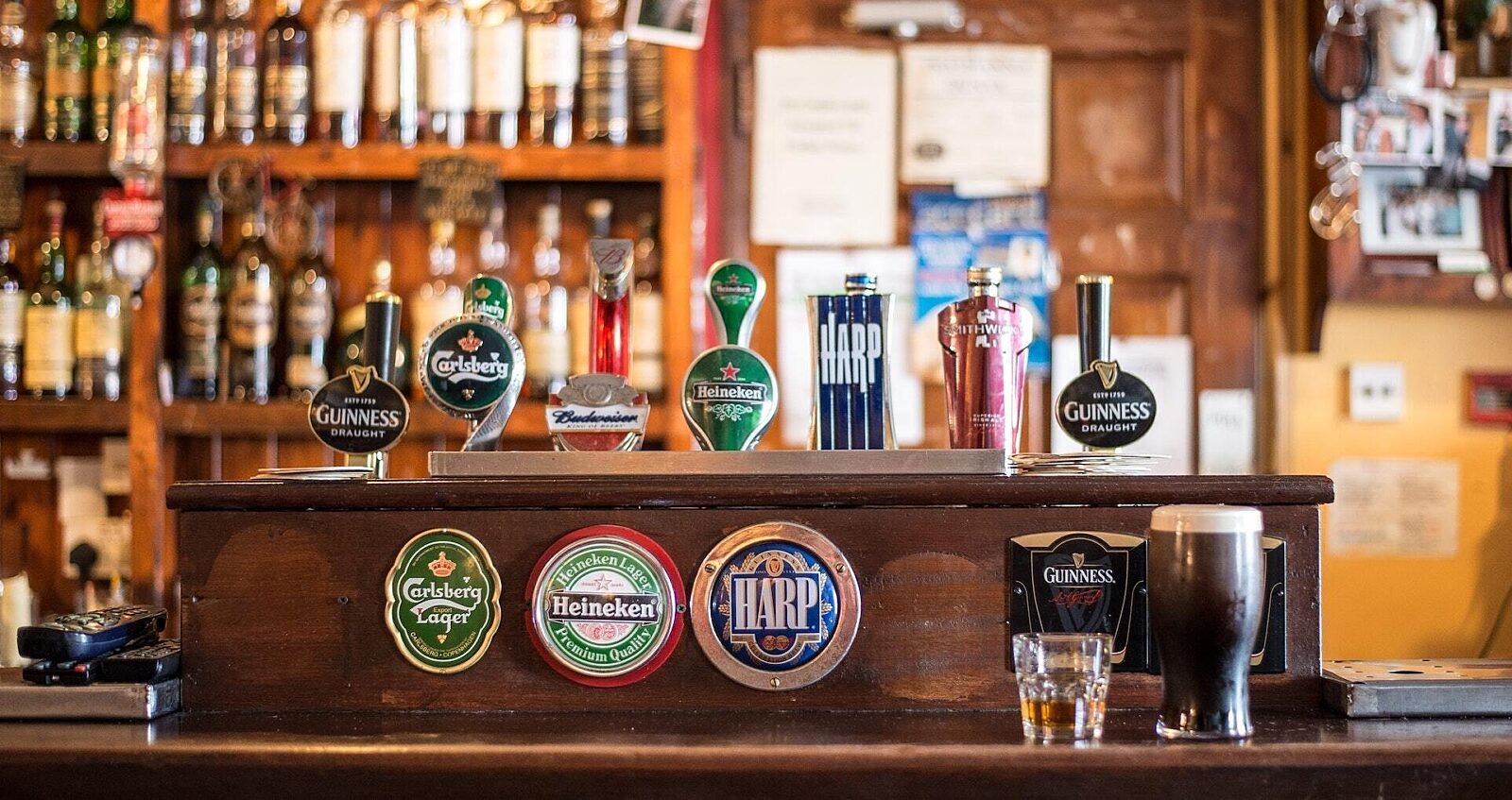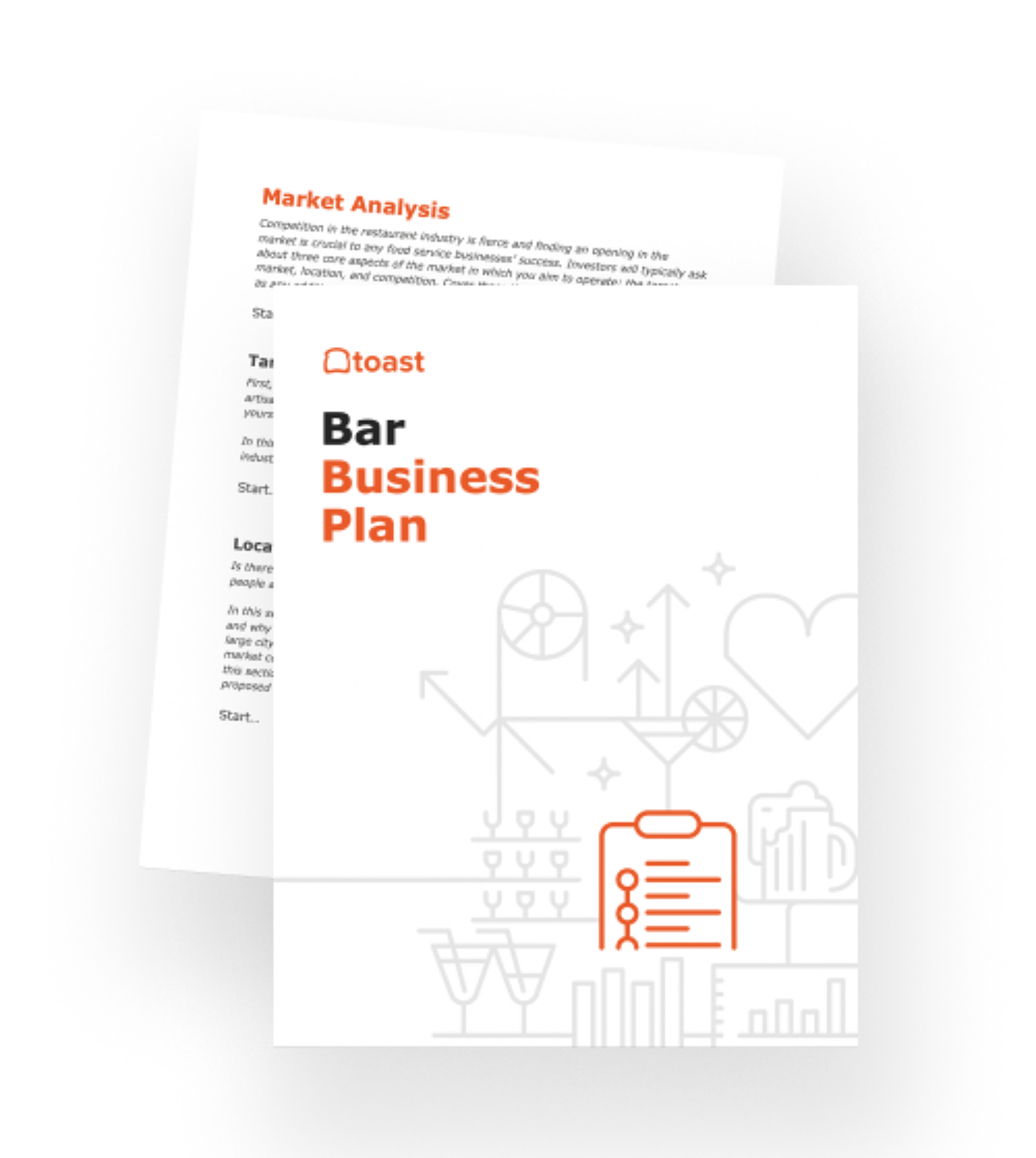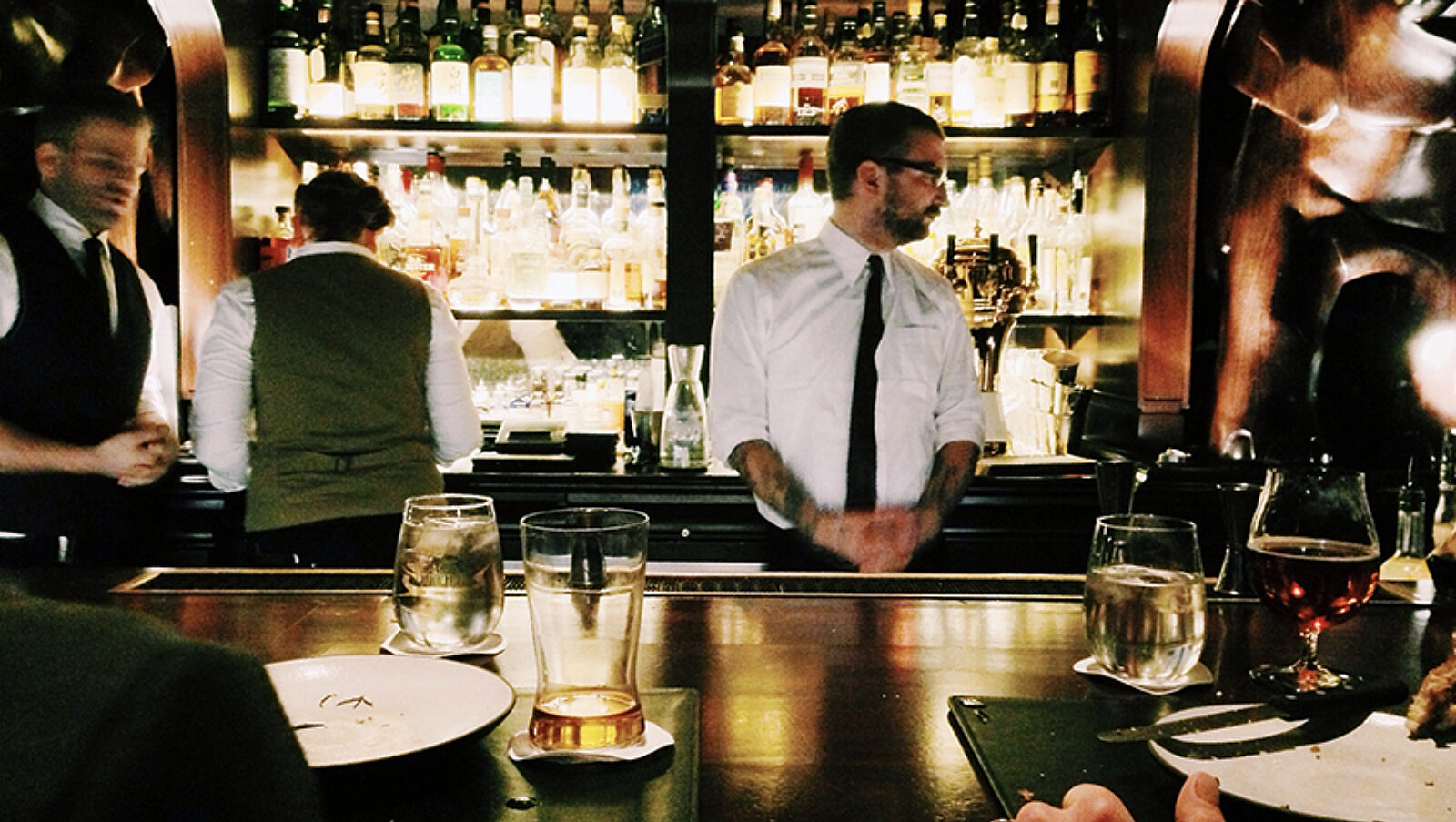
How to Buy a Bar
Here's your guide to buying a bar business.
Aimee LevittAuthor


Bar Business Plan Template
Use this free bar business plan template to easily create a great business plan that organizes your vision and helps you start, grow, or raise funding for your bar.
Get free downloadCongratulations! You’ve decided to take the plunge and become a bar owner. But even though the bar business is all about providing fun, bar owners are still business owners, and it’s important to think of buying your bar as an important business decision, not just a whim. Here’s how to do it.
Buying vs. starting a bar
There are two options available for those who want to own a bar: Start a new bar, or buy an existing one. Each option has its pros and cons. To learn more about starting a new bar business, check out this article.
Buying a bar is a great option for those who want to avoid the headaches of starting a new business, and jump right into owning an already-established bar, with an existing brand and customer base.
Bar Equipment Checklist
Opening or upgrading a bar? Don't miss any essential equipment! Download our free, comprehensive Bar Equipment Checklist.

How much does it cost to buy a bar?
On average, it costs between $110,000-$850,000 to open a bar, depending on whether you are renting/leasing or buying and where you are.
How to buy a bar
When buying a bar, consider these steps.
Determine Your Goals
The first thing to do is get clear about what the bar business you’re trying to build looks like. What type of bar are you looking to buy based on the type of business you want to run? Are you looking for a small neighborhood dive bar or a larger high-volume location?
Consider the following questions:
- What type of bar are you looking to buy?
- Do you want a cocktail bar, a corner bar, a sports bar?
- What’s your budget?
- What kind of crowd do you want to attract?
- Would you rather have customers who buy lots of cheaper drinks or customers who buy fewer, but more expensive drinks?
- Where do you want to open this bar?
Look at the market
As you begin to look for bars to purchase, take time to identify your target market. This is essential so you can make a plan to acquire and entice customers, and align with the guests you want to cater to the most.
Ask yourself questions, like:
- Where do you want to open your bar, and who do you want to serve?
- Check out the competition:
- What are the most popular bars and bar types in the area?
- Is there a significant gap in the market?
- Investigate available real estate:
- What’s for sale or rent in your area?
- Do any of those spaces lend themselves to one particular type of bar?
- Based on all these factors, what do you think will be the most successful?
Figure out financing
It’s important to outline how much you’re willing to spend and where your capital will come from before you begin looking at bars to purchase. Here are some financial considerations to keep in mind when purchasing a bar:
- Real Estate & Closing Costs
- Licensing & Trademark Costs
- Transfer of Ownership Costs
- Refurbishing & Equipment Costs
- Working Capital
Business loans are a great option for prospective bar owners in need of capital. There are many different options for loans, ranging from a traditional bank loan to federal small business loans to microloans and crowdfunding. Each of these has its own advantages and disadvantages – learn more about each option here. Consider what sort of terms you would be comfortable with, including interest rates and repayment schedules.
If you need to purchase new equipment, it’s worth looking into equipment financing plans which allow you to pay for your new pieces incrementally instead of in one lump sum upfront.
Ask the right questions
Once you have found a bar you’re interested in buying, here are a few questions you should ask the seller before you put any money down.
Why is the bar for sale?
It’s important to have a frank talk with the current owner and find out why they want to sell. This will, at the very least, alert you to some of the pitfalls ahead. What are sales like? Is the bar profitable? What are the biggest challenges the owner has faced with running this bar?
What is the bar’s reputation?
Spend some time at the bar and investigate the customer base. Why do they like this bar? What keeps them coming back – or not? Also talk to neighbors and other people in the immediate vicinity. Will you have trouble with the bar and its clientele before you even open?
What does the competitive landscape look like?
Is there a need for your bar in the area, or will you be fighting for customers? It’s always good to go in with your eyes open and know who your competitors will be.
Do your due diligence
There is a great deal of paperwork involved in buying a bar. It’s best to have the financial, legal, and operational components laid out ahead of time to avoid surprises later on.
Financial Paperwork
If you are applying for a loan, loan officers will definitely want to know about your potential financial performance. Be prepared to have all your financial records ready in order to demonstrate your assets and liabilities, including balance sheets, cash flow statements, income statements, and tax returns.
If you’re taking over an existing business, check over the materials the seller gives you about the current valuation to make sure it all adds up. Here is a guide to evaluating a business’s financial performance.
Licenses & Permits
You will also need to obtain business and liquor licenses and operating permits from your city, or, if you’re buying an existing bar, you’ll need to make sure they’re current. Instructions for how to get them should be on your local government website.
You’ll also need to establish new contracts with vendors, or make sure that existing contracts make allowances for things like a change of ownership.
Operations & Staff
If you’re buying an existing business, the current owner will provide you with information about the current employees, including salaries, benefits, tenure, and availability. From there, you’ll be able to figure out labor costs. If you’re starting from scratch, you’ll have to determine how much help you need and how much you’re willing or able to pay.
Finally, you should definitely make sure that whatever building you’ve rented or bought is consistent with your local health and building codes and be prepared to make repairs or buy new bar equipment if it’s not. Investing in all of this now will save you a lot of grief further down the line.
Hire a lawyer and negotiate a contract
It's a good idea to hire a lawyer to help you through the process of buying a bar.
If you don’t currently have an attorney, here are some options to find one:
- Recommendations from your state or city restaurant association
- LegalZoom
- Word of mouth
Once you’ve hired your lawyer, they will work with the seller and their lawyer to negotiate and draw up a purchase agreement. This is a contract that establishes the purchase price, manner of payment, and any special conditions.
What else will a lawyer support with?
A lawyer will also be able to help you with the transition of ownership, which can be a complicated process. The previous owner should have provided you with all the necessary documentation and paperwork during the sale, but it’s helpful to have a checklist so nothing falls through the cracks.
Whatever the case, the opening of your bar should be a celebration. You did it!
Bar and Lounge POS Comparison Tool
A free, customizable Bar and Lounge POS Comparison Tool to research and compare point of sale systems in one Excel spreadsheet or editable PDF.

Congratulations! You’re a Bar Owner!
Buying a bar is a tremendous undertaking, but if you think strategically, keep your goals in mind, and stay organized, you should be setting yourself up for success for years to come.
Is this article helpful?
DISCLAIMER: This information is provided for general informational purposes only, and publication does not constitute an endorsement. Toast does not warrant the accuracy or completeness of any information, text, graphics, links, or other items contained within this content. Toast does not guarantee you will achieve any specific results if you follow any advice herein. It may be advisable for you to consult with a professional such as a lawyer, accountant, or business advisor for advice specific to your situation.
Read More
Subscribe to On the Line
Sign up to get industry intel, advice, tools, and honest takes from real people tackling their restaurants’ greatest challenges.



